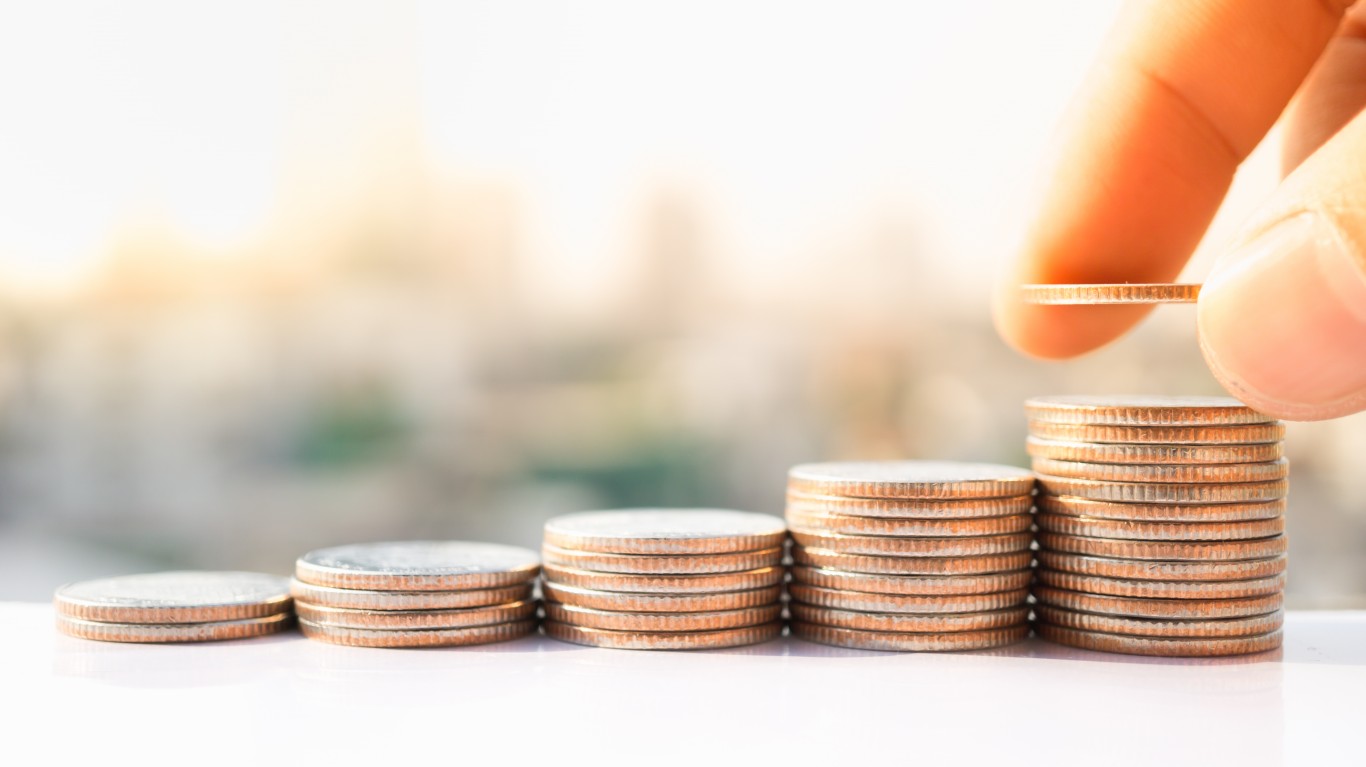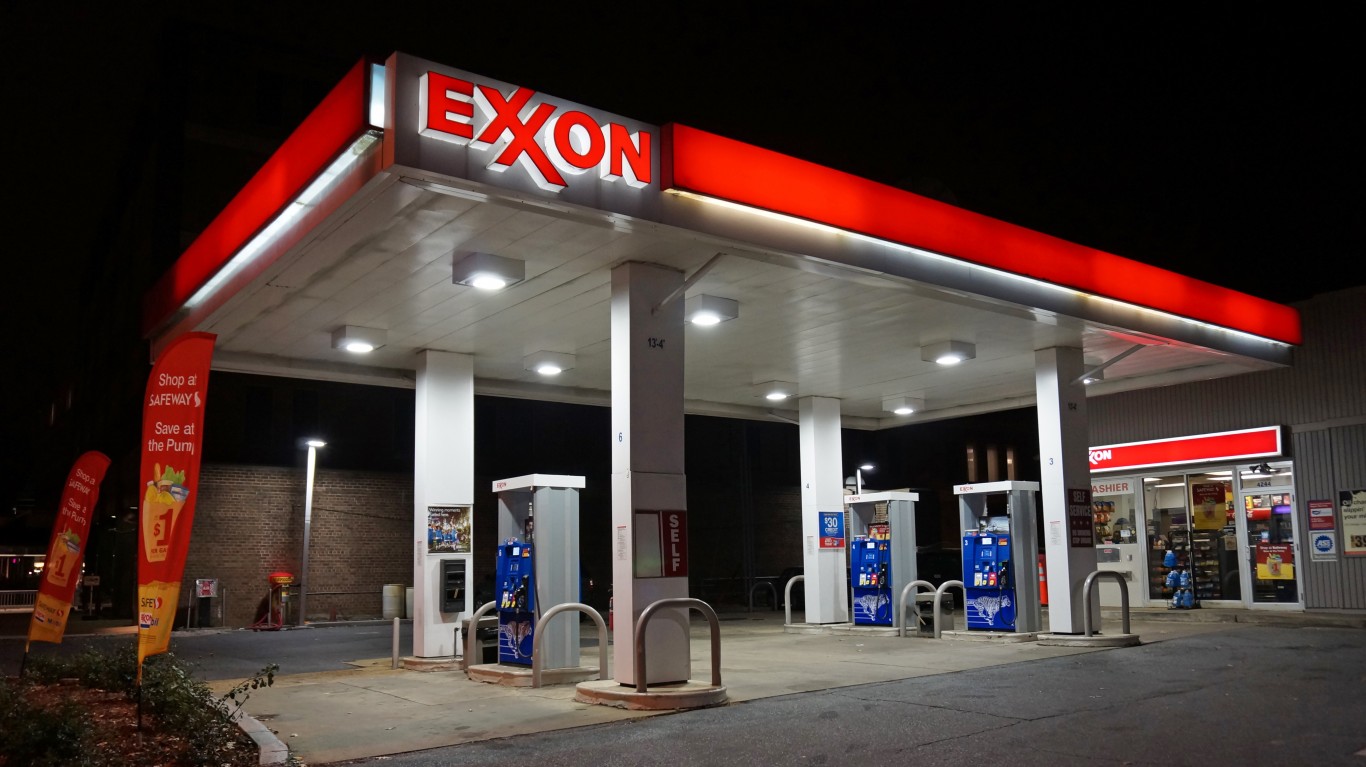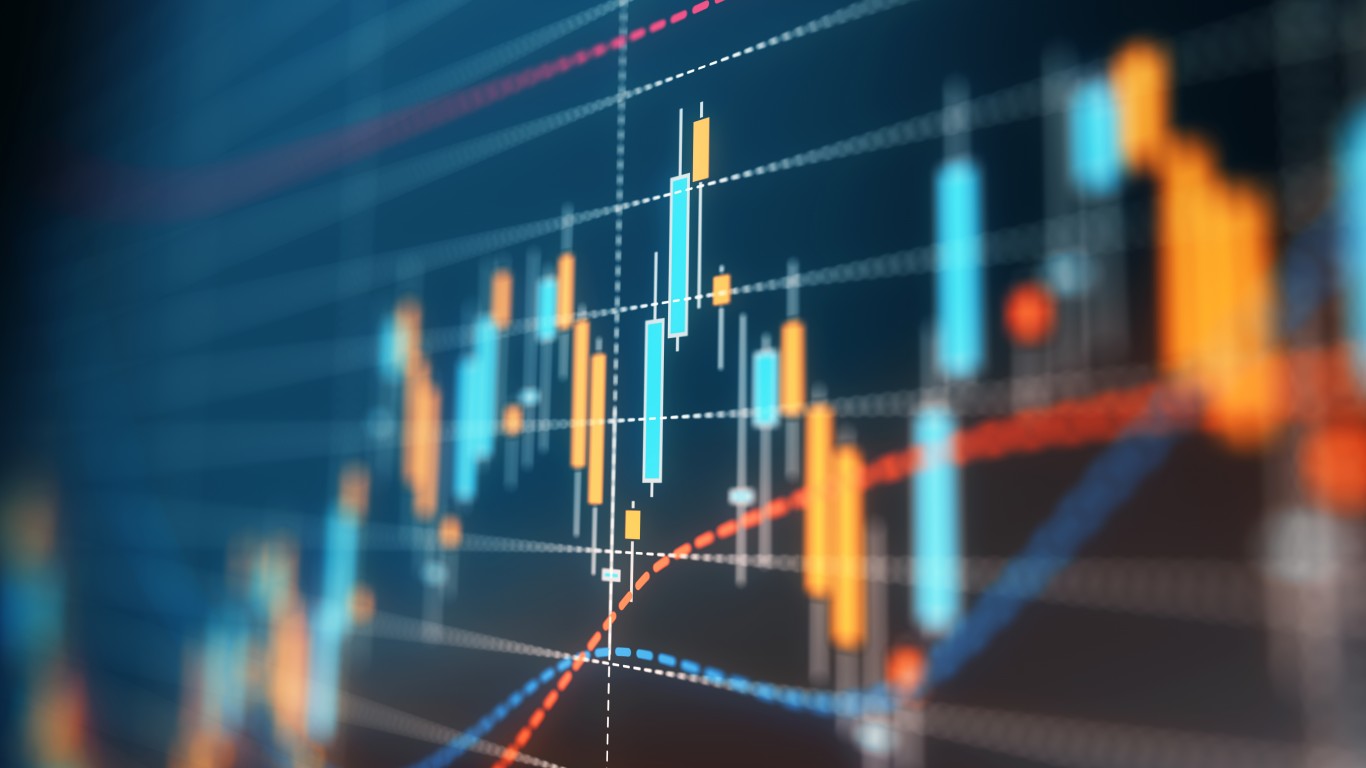Investing
Dividend Aristocrat Exxon Just Paid Investors: Here's How Much They Got

Published:

Exxon Mobil Corp. (NYSE: XOM) is rewarding its shareholders once again with a quarterly dividend of $0.99, payable on Tuesday, Dec. 10. That is a 4% increase over the prior payout. The company recently completed a huge acquisition, and the dividend payment underscores the management’s commitment to continuing to deliver consistent value to investors.

Investors favor dividend stocks for two main reasons. The first is that they offer enticing total return potential. Total return is a comprehensive measure of investment performance that includes interest, capital gains, dividends, and distributions realized over time. In other words, the total return on an investment or a portfolio consists of income and stock appreciation. It is one of the most effective ways to boost the prospects of overall investing success.
Dividend stocks can also provide investors with a steady, reliable stream of passive income. Passive income is money that is earned with little to no ongoing effort, usually from assets that generate cash flow. This income can come from a variety of sources, including stock dividends. Generating passive income is a desirable financial strategy for those seeking to diversify their income streams or achieve financial independence.

Exxon is the epitome of a stable and dependable stock. It has not only paid out but has increased its dividend annually for 42 years. That is well more than the 25 straight years of growth it takes for an S&P 500 member to become a Dividend Aristocrat. Moreover, in a few years it is poised to become a Dividend King, a member of that exclusive group of stocks that have at least 50 consecutive years of dividend growth.
Since 2004, Exxon’s dividend has grown about 296%. The current dividend yield is 3.5%, which is less than the energy sector average and the yields of some of its competitors. The share price has grown by almost 90% since 2004 as well, offering investors some growth along with the income.

This company engages in the exploration and production of crude oil and natural gas globally. While its Upstream segment explores for and produces crude oil and natural gas, the Energy Products segment offers fuels, aromatics, and catalysts, as well as licensing services. It also sells its products under the Exxon, Esso, and Mobil brands.
Its Chemical Products segment manufactures and markets petrochemicals including olefins, polyolefins, and intermediates. The Specialty Products segment offers performance products, including lubricants, basestocks, waxes, synthetics, elastomers, and resins.
The company is involved in the manufacturing, trade, transport, and sale of crude oil, natural gas, petroleum products, petrochemicals, and other specialty products. It pursues lower-emission business opportunities, including carbon capture and storage, hydrogen, lower-emission fuels, and lithium.
Its headquarters are in Spring, Texas, which is in the Houston area. The company was founded in 1866 and later acquired by Standard Oil. The modern company is the result of the merger of Exxon and Mobil in 1999. It competes with or is similar to Chevron Corp. (NYSE: CVX), ConocoPhillips (NYSE: COP), Shell PLC (NYSE: SHEL), TotalEnergies S.E. (NYSE: TTE), and others.
The CEO recently called for the United States not to pull out of the Paris Climate Agreement. Exxon has sold $1 billion in Permian assets and is weighing a $1 billion asset sale in Singapore. The company has completed its deal to buy Pioneer Natural Resources, valued at nearly $60 billion, which will result in some job cuts in Texas. Exxon also is looking to drill natural gas wells in Cyprus.

The stock has grown about 64% in the past five years, underperforming the S&P 500. However, the share price is about the same as six months ago, while the S&P 500 is about 15% higher. Shares hit a multiyear high of $126.34 in October. The mean price target is up at $131.71, which means that Wall Street sees about 16% upside in the coming year. More than half of the 28 analysts who cover the stock recommend buying shares, seven of them with Strong Buy ratings. TD Cowen recently reiterated its Buy rating.
The stock remains popular with hedge funds, and it is a top pick of billionaire Ken Fischer. Institutional investors hold more than 65% of the shares. BlackRock, State Street, and Vanguard have notable stakes. Over 41 million shares, or nearly 1% of the float, are held short. Note that a director acquired $2 million worth of shares last summer.
Three Surprising Things Billionaires Look for in Dividend Stocks
After two decades of reviewing financial products I haven’t seen anything like this. Credit card companies are at war, handing out free rewards and benefits to win the best customers.
A good cash back card can be worth thousands of dollars a year in free money, not to mention other perks like travel, insurance, and access to fancy lounges.
Our top pick today pays up to 5% cash back, a $200 bonus on top, and $0 annual fee. Click here to apply before they stop offering rewards this generous.
Flywheel Publishing has partnered with CardRatings for our coverage of credit card products. Flywheel Publishing and CardRatings may receive a commission from card issuers.
Thank you for reading! Have some feedback for us?
Contact the 24/7 Wall St. editorial team.